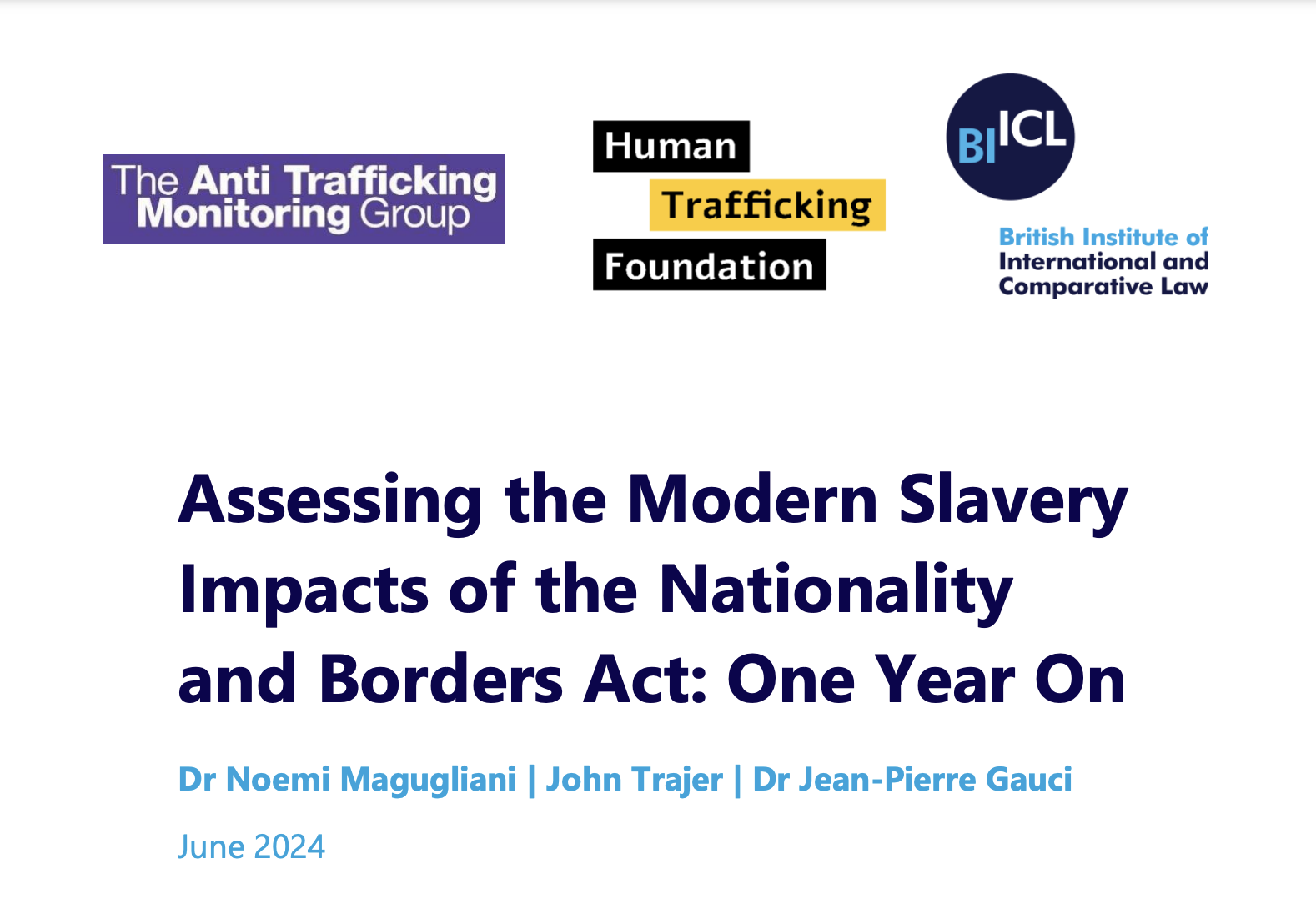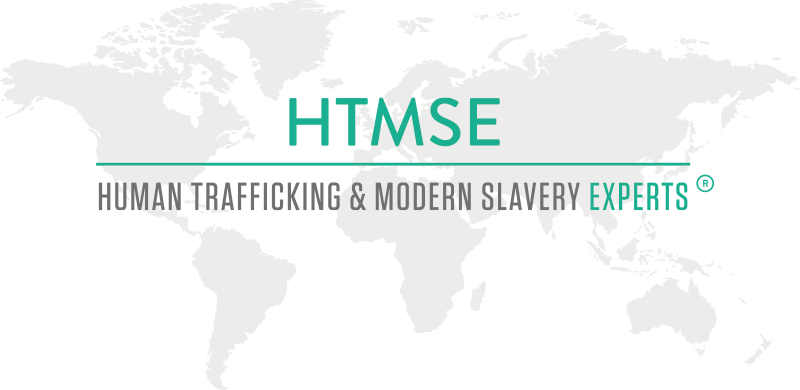
This month, British Institute of International and Comparative Law, with Human Trafficking Foundation and the Anti-Trafficking Monitoring Group released a report to assess the impact of the UK Nationality and Borders Act. After passing in April 2022, the provisions relating to modern slavery came into effect in January 2023. The report examines impacts over the last year on decision making outcomes, people with lived experience of modern slavery, and on organisations in the modern slavery sector.
As detailed further in this report, the Nationality and Borders Act made critical changes to processes addressing Modern Slavery in the UK, including:
- new definitions of ‘victims’ of modern slavery and human trafficking
- changes to the definition of the ‘reasonable grounds’ decision within the National Referral Mechanism
- the introduction of a procedure to exclude modern slavery protections on grounds of public order and bad faith
See here for or the full report Assessing the Modern Slavery Impacts of the Nationality and Borders Act: One Year On.
